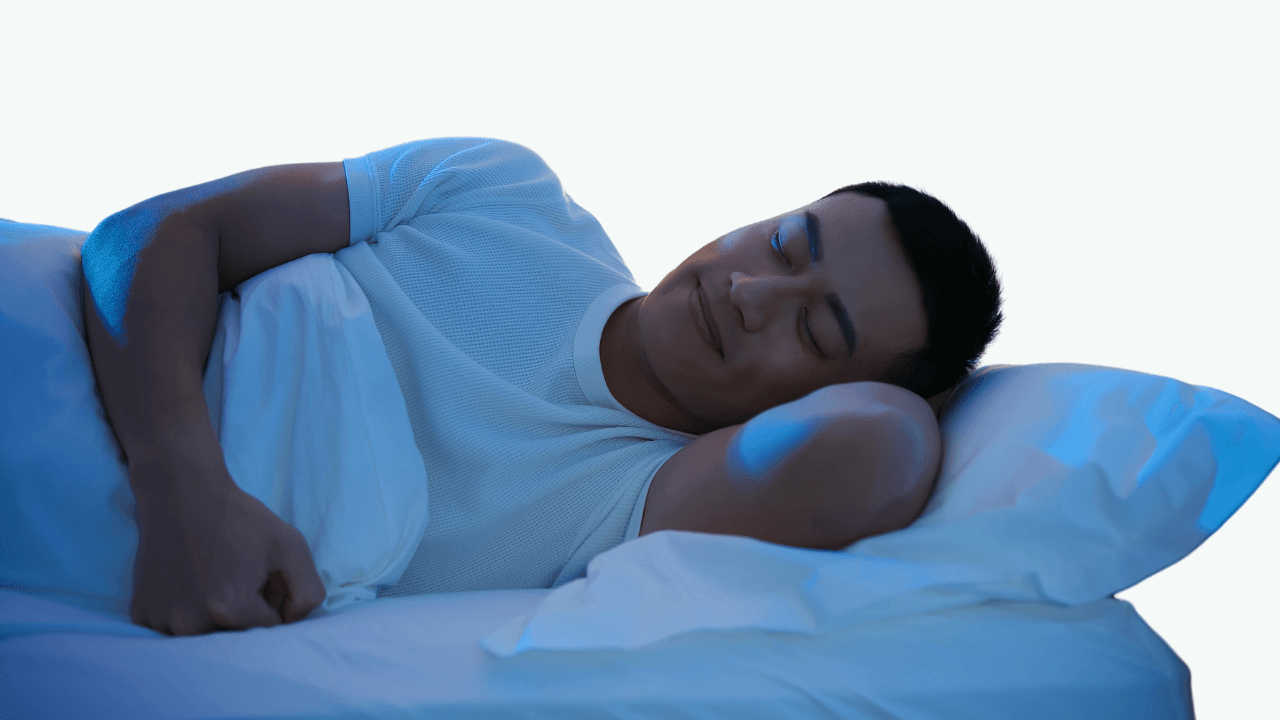

The human body continues to burn calories even during sleep. It does so to sustain energy for essential bodily functions like breathing, cellular processes, and organ functioning.
This body’s calorie-burning potential is referred to as the resting metabolic rate. Sleeping may require fewer amounts of energy than daytime. However, your brain and other body functions are still active when sleeping.
Factors like metabolism, weight, age, and gender may affect the number of calories you might burn while sleeping. Do different sleep stages influence your body’s calorie-burning potential?
This article highlights simple ways to increase calorie burn, including unique tips on enhancing metabolism and calorie burning during sleep.
You could burn around 50 calories every hour during the resting period of sleep. This number could fluctuate depending on personal characteristics and the person’s basal metabolic rate.
The basal metabolic rate determines the amount of energy needed for essential bodily functions like cellular repair, breathing, and circulation. It accounts for around 80% of daily calorie expenditure during sedentary periods (like sitting or sleeping). It may vary based on factors like weight, age, gender, and muscle mass.
Men tend to burn more calories when sedentary than women of the same weight. They have a high lean muscle mass composition, which may provide a more significant caloric burn than fat.

Distinct metabolic activities occur during different sleep phases, which might influence the calories burned during sleep.
Rapid eye movement (REM) sleep is an energy-intensive stage characterized by increased heart rate and brain activity similar to waking levels. The heightened brain activity requires more glucose, leading to more calories burned during this stage.
Stage three sleep (or deep sleep) is when essential bodily functions reach a minimum, including heart rate, respiration, and brain activity. This stage may support the release of growth hormones and the functioning of the immune system.
However, due to reduced brain glucose requirements during stage three sleep, metabolism and calorie-burning capacity could be at their lowest during this phase.
Strength training workouts like weightlifting, resistance band workouts, or bodyweight exercises may help increase muscle mass. Such a mechanism could elevate your resting metabolic rate, helping you burn more calories while sleeping or at rest.
Cardiovascular exercises like running, swimming, or cycling may help burn calories throughout the workout and contribute to a higher metabolism post-exercise. High-intensity interval training may have a lasting afterburn effect, where the body burns calories at an increased rate even during rest.
Include multiple exercises like cardio and strength training, which may further enhance your overall calorie expenditure.
Losing weight may significantly impact and improve your metabolism by increasing the efficiency of calorie-burning processes within the body.
Weight loss may improve body composition by reducing fat composition and supporting muscle mass development. These effects may raise the body’s basal metabolic rate, contributing to efficient calorie burning during sleep.
Establishing healthy weight loss goals, consuming a nutritious diet, and a consistent exercise regimen may help you achieve sustainable weight loss.
Protein-rich foods possess a higher thermic effect than fats or carbohydrates, meaning they require more energy to metabolize and store. Such effects may temporarily enhance the metabolism after consuming a high-protein meal.
High-protein diets may raise the number of calories burned during digestion, with some studies suggesting an increased resting metabolic rate after consuming protein-rich meals.
Protein also aids muscle maintenance and growth, which may further boost metabolic rate due to the calorie-burning properties of muscle tissue. It implies that consuming protein-rich foods may accelerate calorie burning, helping burn more calories during sleep.
The table below highlights some protein-rich food sources that are beneficial for increasing metabolic function:
| Protein-Rich Foods | Protein Content |
|---|---|
| Chicken Breast (sliced) | 7.05g (in 2 slices) |
| Soybeans (green , raw) | 33.15g (per cup) |
| Yogurt (low-fat, plain) | 8.93g (per 6oz) |
| Almonds | 28.92g (in one cup) |
Factors influencing calorie burn include height, fitness level, weight, age, gender, and sleep quality. Other factors could be racial background, genetic predispositions, or hormonal balance.
These factors help determine a person’s basal metabolic rate (BMR) and total energy expenditure. Here is a breakdown of how each factor can influence calorie burn:
| Factor | Influence on Calorie Burn |
|---|---|
| Height | Taller individuals tend to have a higher BMR due to more body mass to maintain. |
| Weight | Heavier individuals typically require more energy for basic bodily functions. |
| Fitness Level | More muscle mass from regular exercise increases calorie burn at rest by stimulating the metabolism process. |
Calculating the calories burned while asleep requires understanding individual metabolism and factors determining basal metabolic rate (BMR). The BMR represents the number of calories burned at rest, including during sleep.
To calculate your BMR, you could use specific equations based on your weight, sex, age, and height. Here is a breakdown of how to calculate your BMR:
Understanding your BMR may help establish the baseline calories your body needs for essential functions while at rest. It enables you to make informed decisions about your diet, exercise routine, and overall health goals.
Your body continues to burn calories even when sitting or sleeping. Your metabolism, age, weight, and basal metabolic rate may influence the calories your body burns during sleep.
Try getting regular physical activity, maintaining a moderate weight, and eating enough protein. These lifestyle improvements may help enhance your body’s calorie-burning potential, even during sleep.
Adhering to a consistent sleep schedule, avoiding stimulants like nicotine and caffeine (close to bedtime), and limiting screen time may help induce quality sleep.
Tyler Read earned an undergraduate academic degree from Sonoma State University, California and is a certified personal trainer (CPT) with NASM (National Academy of Sports Medicine). With over 16 years of experience, Tyler has trained clients both online and in-person.
He is passionate about helping others turn their love for fitness into a career. Tyler has worked with many local and commercial gyms before establishing his successful private personal training business, which he continues to operate.
